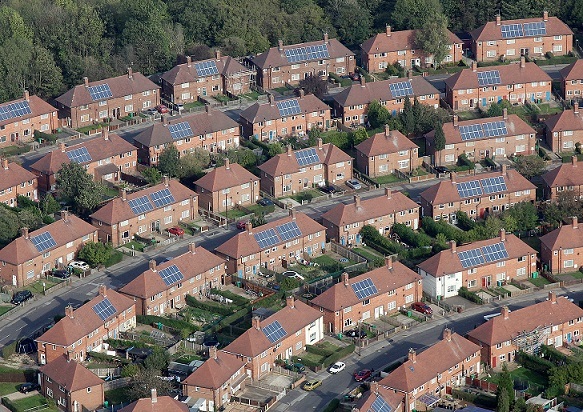Changes in public policy are still needed to encourage a switch from gas boilers to hybrid systems, but the Future Homes Standard should be implemented now.
In a piece looking at the switch to low-carbon electric and hybrid heating systems, chief executive of Centrica Consumer Sarwjit Sambhi, argued that there is no reason to delay the ban on new homes being connected to the gas grid to 2025 and that the Future Homes Standards should be implemented now.
Beyond this he calls for a phaseout of oil boilers in the c.4 million off-grid homes in the UK, and an increase to green gas as an interim decarbonisation phase while other homes transition to hybrid systems that combine small-capacity gas boilers with heat pumps.
However these systems are more expensive than conventional boilers, and as such public policy will need to step in with incentive schemes capable of providing the additional capital needed to transition to a lower carbon system.
The article Warm welcome to low carbon heating: Beyond gas is part of a collection published by the independent think tank for liberal conservatism Bright Blue. It focuses on reaching net zero, and includes a number of articles written by major players in transport, utilities, finance, industry and other sectors.
Heating will play a key part of this transition, with emissions from heating now accounting for a third of UK emissions, making it the single largest contributor.
“Getting to net zero by 2050 requires about 2,000 households to become net zero each day between now and then”, explains Sambhi.
At the end of April, grants of £4,000 were announced by the Department of Business, Energy and Industrial Strategy to replace the domestic Renewable Heat Incentive. These formed part of the ‘Future support for low carbon heat’ consultation, which included a number of support mechanisms to drive decarbonisation.
Beyond Sambhi’s article and the call to decarbonise heat, an article by Joanna Furtado, policy advisor for the Green Alliance, calls for a “dramatic overhaul to the national fleet” including a switch to electric vehicles (EVs).
She says that the UK is falling behind a number of other countries in the transition and calls for a proper support package for manufacturers and new regulations to drive the transition to cleaner vehicles.
Clementine Cowton, director of external affairs at Octopus Energy, produced a piece calling for greater digitalisation to help avoid “centralised, ‘dumb’, industry-centric approaches” to the challenges of decarbonising the electricity network.
Instead she argued that “algorithms maximise the utilisation of resources, and thus keep prices down overall”, urging the electricity sector to take note of the impact of technology on other sectors such as ride hailing.
Towards the end of the collection, Laura Sandys, chair of the Energy Data Taskforce, highlights the importance of recognising how the world has changed due to the current pandemic, and building that into tackling climate change.
“Decarbonisation at the heart of the COIVD-19 recovery will in turn release the growing appetite for the price sector invest, innovate and build strong low carbon businesses,” Sandys states.
This mirrors a plea made by many to tie recovery plans to decarbonisation, with the Committee on Climate Change calling on the Prime Minister at the beginning of the month to place it at the heart of any strategy.
The broad ranging Delivering Net Zero report both celebrates the UK’s progress towards decarbonisation – with the country having reduced its emissions by over 40% since 1990 – and highlights the great shifts still needed if it is to become net zero by 2050.
As Patrick Hall, researcher at Bright Blue and report co-editor, commented, becoming net zero will be “by no means an easy feat”.
“The coronavirus crisis should act as a catalyst for governments and businesses to urgently do more to address the challenge of this century – climate change.
“The transition towards net zero is often seen as requiring vast amounts of government-led investment and intervention. Yet, this neglects the progress that has been made on decarbonisation to date and could further be made in the future through well-regulated markets with sensible incentives from government.
“This Conservative government needs to examine and promote how market-based reforms could yield substantial economic and environmental benefits in the journey to net zero.”






